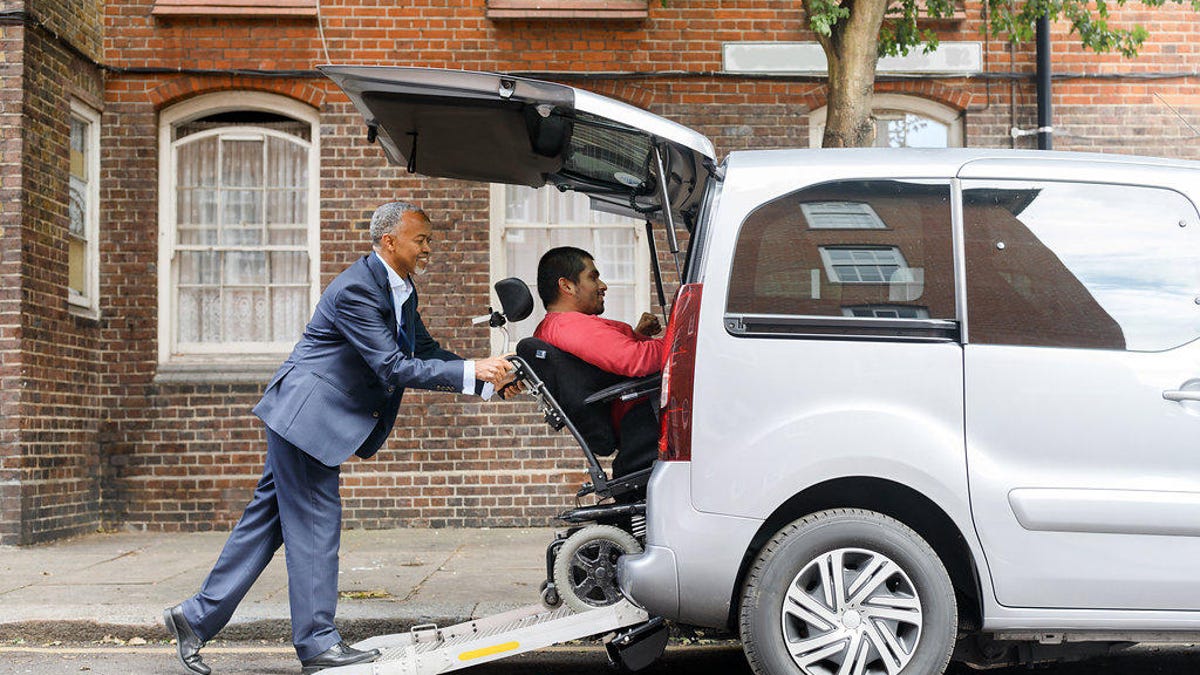Uber discriminates against people in wheelchairs, lawsuit says
The ride-hailing company is sued in California for allegedly not providing enough wheelchair-accessible vehicles.

Uber provides vehicles with ramps and hydraulic lifts for people in wheelchairs. But disability advocates say those rides are hard to come by.
Uber has a specific service for people with wheelchairs, it's called UberWAV for "wheelchair accessible vehicle." But disability rights advocates say those cars are rarely available.
This is the crux of a new lawsuit filed against Uber in California's Alameda County Superior Court on Tuesday. A group of individuals and organizations say the ride-hailing company discriminates against people with mobility disabilities by not providing wheelchair-accessible vehicles.
"Uber is such an important transportation option in the Bay Area," Jessie Lorenz, executive director of the Independent Living Resource Center of San Francisco and plaintiff in the lawsuit, said in a statement. "We are deeply disappointed in Uber's continued resistance to following the laws that keep transportation services open to everyone."
The lawsuit says that because wheelchair users cannot rely on Uber as a transportation option, the company is violating California's anti-discrimination laws. Federal laws, like the Americans with Disabilities Act, also require all transportation providers to accommodate wheelchairs.
This isn't the first lawsuit against Uber for allegedly discriminating against people with disabilities. Similar suits have been filed in New York, Washington, D.C., and Chicago. Blind people have also said they've been discriminated against by the ride-hailing company. A lawsuit filed by the National Federation of the Blind of California in 2015 pointed to more than 40 instances in which Uber drivers allegedly refused to give rides to blind passengers with guide dogs.
For its part, Uber says it does a lot to support disabled passengers. Besides UberWAV, which includes vehicles with ramps or hydraulic lifts for wheelchairs, it also offers UberAssist that lets passengers request a driver trained to accommodate disabled people. Uber also has added features to its app for blind and deaf people, including wireless Braille displays and vibrating alerts.
"We take this issue seriously, and are continuously exploring ways to facilitate mobility and freedom via the Uber App for all riders, including riders who use motorized wheelchairs," said an Uber spokesman.
While Uber has added these new services over the years, the groups that filed the lawsuit Tuesday say it's near impossible to get a wheelchair-accessible vehicle. They say UberWAV is only available about 20 percent of the time in San Francisco, and in other Bay Area cities it isn't available at all. When there is a vehicle, the groups say customers may have to wait as much as 14 times longer than they would for another type of Uber ride.
The lawsuit isn't seeking monetary damages. Instead, the groups say they just want Uber to provide equal access to people with mobility disabilities.
"If Uber is going to be the transportation of the future, it needs to make wheelchair accessible Ubers part of that future," said Melissa Riess, staff attorney at Disability Rights Advocates, which is representing the plaintiffs in the lawsuit. "It is disgraceful that even in its hometown, Uber has ignored its obligation to make its service available to all people equally."
Virtual reality 101: CNET tells you everything you need to know about VR.
Batteries Not Included: The CNET team reminds us why tech is cool.

